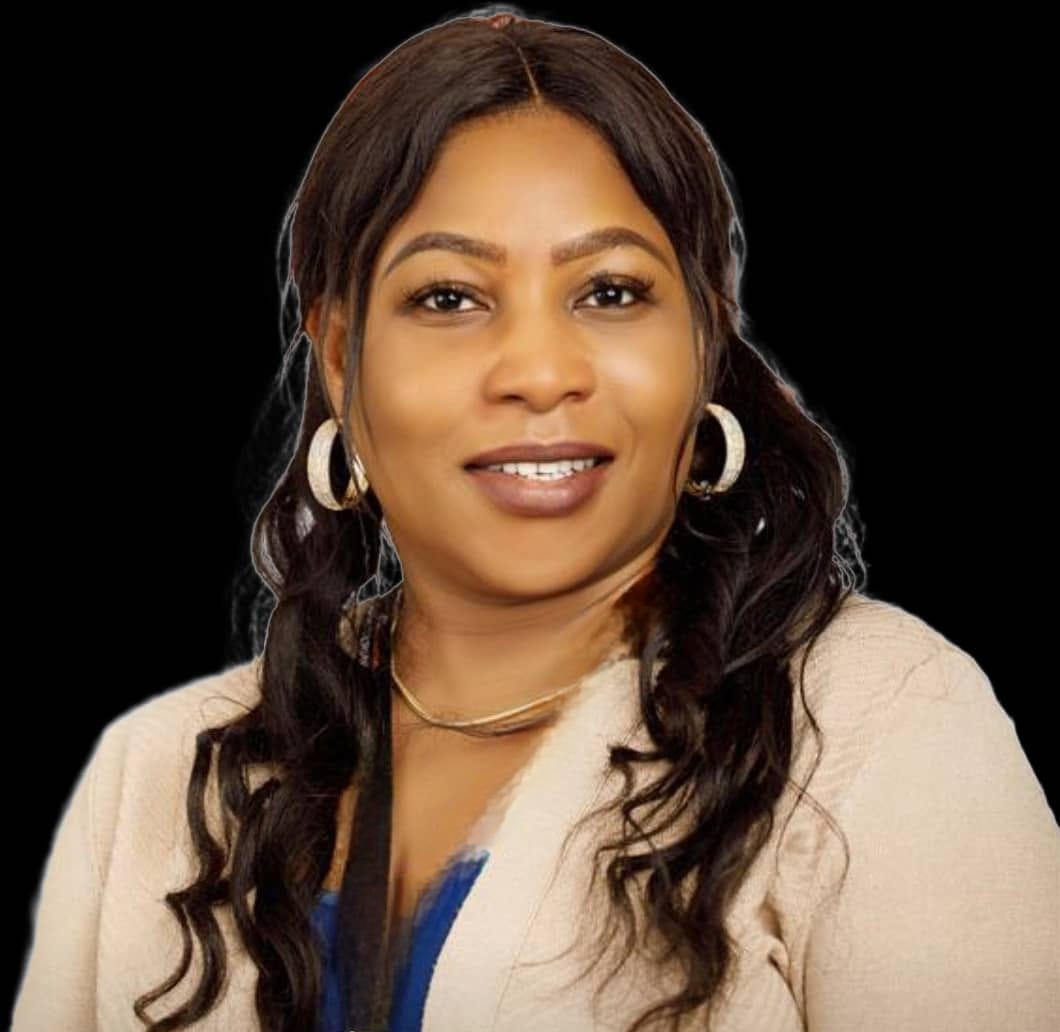Nigeria Needs Policy Rejig to Achieve Greater Female Participation in Maritime, Logistics – Ogunniyi, CEO Temerity Experts

In this maiden edition of the The Woman Leader segment, Temilade Ogunniyi CEO Temerity International Experts, gives an insight on issues faced by females in the maritime sector, where she has been for over two decades.She talks about how best the government can formulate policies to encourage more female representation in the industry
(Q) Tell us about yourself, your designation and the service (s) you render in the Nigerian maritime industry.
My name is Temilade Ogunniyi, I’ve worked in the maritime sector for about two decades. Having worked across both the major shipping lines in Nigeria as well as the premier port, which is the Apapa port.
I was the commercial manager for APM Terminals Apapa, working with both the shipping lines, as well as the importers and the exporters. So, it was like a wide coverage of everything that had to do with terminals and shipping itself.
Over the years, I have been working to gain a detailed understanding of the maritime industry and figuring out how we can begin to drive value across the major chains. As part of this, I decided to launch out of APM Terminals Apapa, an organisation I’ve worked with for over eight years, to deliver more value by driving efficiencies through automations. For this reason, I decided to establish some relationships with like-minded individuals in the industry.
We set up a company called Temerity International Experts. Due to our expertise in the maritime industry, we serve as consultants for significant organizations. However, the main goal of our consultancy is to reduce system and process waste. When organisations contact us, we examine their systems and processes, identify the problem areas, and then offer solutions through automation.
We provide solutions by helping to automate their processes. When you minimise manual interventions in your systems and processes, it drives more efficiency and you’re able to get rid of the wastes. So we have a lot of waste in our sector, which has been running for many years and we are strong enough to partner with major organisations to see how we can start looking into those wastes and start getting rid of those wastes. By that, we would be able to support our economy and we would be able to drive Nigeria’s growth through the maritime sector.
(Q) What would you describe as the greatest challenge you have faced in your business and professional endeavor?
People’s awareness of automation and digitalisation is still growing. Intriguingly, I decided to major on this for my graduate studies. As someone who has worked on major projects in multiple countries, I can say that I have known for ten years that it would be the answer to our problems. We as Nigerians seem to have a halfhearted attitude when things go wrong, and sometimes we aren’t even aware when things are going wrong. We’ve accepted it as the norm, or we just blend in with what is available.
Our culture and education do not teach us to recognise issues and address them before they grow more complex. The main issue, then, is mindset, which is evident in most players in this industry. People who were raised in far more developed environments don’t appear to have these mentalities. Therefore, I consider this to be a significant issue when it comes to promoting digitisation.
There is a kind of pushback by the people who these tools should support and for many of them, they don’t feel like there is a need, but we can see the waste. We all understand there is a waste, but we still don’t want to leave our comfort area to adopt solutions. We still want to keep maintaining the same thing that we’ve been doing for years.
When the time comes, the younger generation will regrettably question us and claim that we did something incorrectly, and they will be the ones to impose this on us. By then, they would want to do things their own way, and we wouldn’t be able to stop them. Therefore, the fact that people’s mindsets are still geared towards outdated methods of doing things is a serious issue that has caused us a lot of trouble.
(Q) Do you think we have adequate female representation in the industry? And how best can the gap be filled?
Looking back to when I first started, I believe that the representation of women in the maritime sector has significantly improved and grown. In the past, you would have observed an extremely low percentage—likely less than 10%—in the majority of the organisations I dealt with, but I believe we have evolved beyond that now.
Naturally, there is still much space for growth in leadership, though, as you can see that when promotions or roles are being considered, executives frequently consider men rather than women the majority of the time. However, as women are now taking on more demanding positions and speaking up about issues, there is still loads that can be done to remedy that. So there’s still a lot of room for improvement compared to where we were twenty years ago.
Q:What do you think the government should do to expand female participation in seafaring, logistics, and ports administration?
As an expert, I believe the best solution to address this is for us to have policies that would start driving some of the initiatives to support women within the maritime sector, not just in recruitment, but in execution and leadership.
Today, there are no guiding rules and people don’t understand the main benefits of diversity where you have diverse views across gender, age, and races. So they just take decisions because the global community is advocating for women representations, but we don’t know the real benefits of the women representation.
So I think more policies around this will start driving the right behaviors across all sector. Today, there are no defined processes or probably there are some policies that are hidden somewhere that are not known to most people that are working within this industry.
I think that is the major problem. But if we are intentional about it and we have it in our policies and we have it in our labour laws, it is going to make a difference in the maritime sector.
Q:What quick benefits do you think mentors can offer to younger ladies as their mentees in the sector?
Consider Nigeria as an example. Why is there such a large divide between our older politicians and the majority of the younger generations who are just starting out in politics? The reason for this is that history is not explicitly transmitted from one generation to the next. Furthermore, younger generations entering politics are unaware of the issues previous generations have encountered, the projects they have tried and failed to implement, or some of the dynamics at play among the various government parastatals.
We will continue to face that issue if we do not encourage women in the maritime industry to receive coaching, mentoring, and support across generations.
Curiously, until I quit my paid employment, I was unaware of the majority of unions. After leaving APM Terminals, I learnt about a few of these women’s organisations.
Therefore, we must begin promoting each of these organisations to the nation’s key organisations. We should now begin to consider the future generation and leaders. But without coaching and mentoring, they would either repeat the faults of their elders or make new, even more serious blunders. Although I didn’t have defined mentors growing up, they are a really useful tool for developing the right people with the right mindset who understand growth, development, progress, mistakes, and problem solving. They can also use the knowledge they’ve learnt from the older generations to help pave the way forward or come up with new solutions that will advance the industry.
So I totally support mentorship and also support coaching. learning through mentorship is the most important, just the way the Igbos do it, where you have your apprentice, the apprentice will keep learning and then grow into establishing their business and it continues like that and of course, that’s why they keep thriving. So what else do we have to learn, if not from the Igbos who adopted the system that they saw worked and they’ve maintained over the years.
Q:Do you think the Ministry of Marine and Blue Economy has raised maritime fortunes for the industry than the old Ministry of Transportation? What specific areas would you say the new ministry has impacted for stakeholders?
I think there’s still a lot of work to be done. it’s too early for us to ask what they have achieved. Right now, what we’ve done is to break an entity into two where the Ministry of Transportation stands on its own and then you have blue economy standing on its own. But at the same time, we still don’t have the right people with the right mindset, technocrats within the maritime sector who have an in-depth understanding of the problems, processes, and the solutions playing within that space.
Even though these ministries are segregated, politics continues to play a part in this area, and we are completely misguided in our approach. In my opinion, there hasn’t been much progress because, in certain nations, the maritime industry is developing and evolving at an incredible rate. However, we are just lagging behind because most appointees are unaware of the significant economic contribution that can be harnessed through the maritime industry.
Regretfully, this is what is decimating our nation and consuming us. In engaging with people in many areas, we have not really seen so much change between what was playing out before and what is playing out now. I think there’s still a lot of things to be done. I would commend the collaboration across all parastatals right now. Probably there’s still something that the government needs to start projecting that some of us would likely see over time. But for now, we are not seeing that happen at the moment. I look forward to seeing drastic advancement through industry disruptions that will make positive impacts on costs, pricing, minimize inefficiencies, drive revenue, minimize stress and boost our economy.






